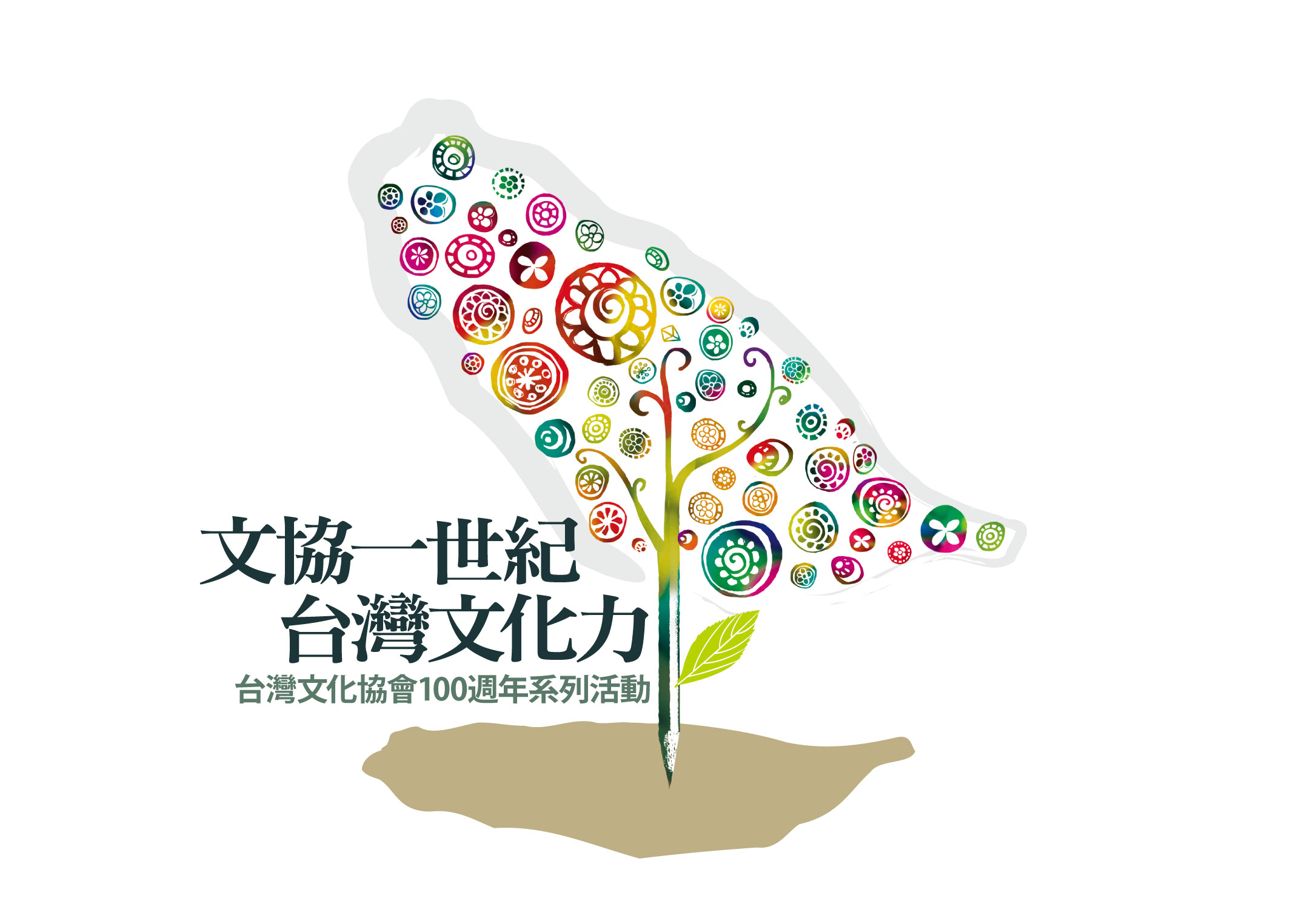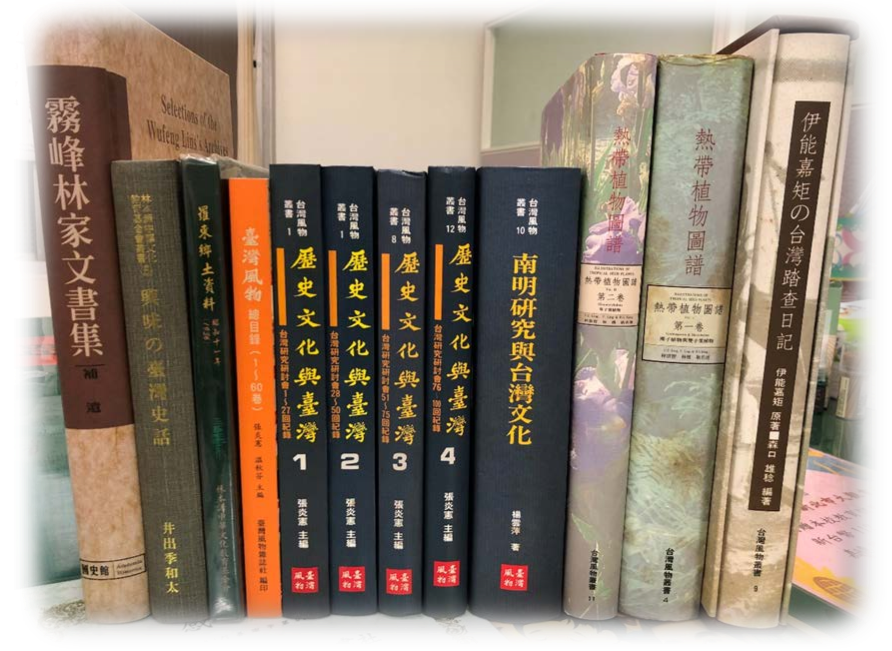 記憶臺灣百年棒球之戀
記憶臺灣百年棒球之戀
Taiwan + Baseball: A century-old love affair
謝仕淵/Hsieh Shih-yuan
2001-11-12
臺灣人對棒球的著迷,不僅源於歷史脈絡、文化淵源,更夾雜著深厚的感情因素。誠如知名的運動社會學研究者Norbert Elias所指出的「認識運動,就是對社會的認識」。因此,認識棒球,也就是對臺灣社會的認識,此因棒球傳入、流行乃至深植人心已百年。棒球的歷史事實上也側寫了一部屬於臺灣人的歷史。本週台灣歷史之窗特別邀請中央大學歷史研究所研究生謝仕淵執筆,由日治時期棒球運動的傳入談起,述說百年來台灣棒球運動的興衰,及其在台灣人生活中所扮演的角色與意義。
The Taiwan people’s ardor for the sport of baseball not only stems from the particular pattern of their historical cum cultural evolution but in the shared “heart” of the Taiwanese. As well-known sports sociologist Norbert Elias has observed, through the understanding of sport one comes to understand human society. By the same token, we can get insights into Taiwan society by understanding how it has come to occupy a central place in its collective heart. Indeed, the history of baseball in Taiwan is a unifying thread running through the contemporary history of its people. This week’s Window on Taiwan invites Hsieh Shih-yuan, graduate reseacher at the Central University Graduate School of History to recount the past century of twists and turns in the saga of baseball in Taiwan since it was first introduced during the Japanese colonial era and the role it has played in the lives of Taiwanese.
「棒球風雲」再起的2001年
數年前,職棒簽賭醜聞的揭露使台灣棒球迷心碎不已,台灣民眾的棒球熱沉寂了好些時日。然而2001年伊始—-也就是去年陳水扁總統所宣佈的棒球年—-我們卻目睹了一場台灣世紀棒球戀的戲劇化復活。今年初,台灣主辦了亞洲盃棒球錦標賽以及亞洲盃三級棒球錦標賽, 台灣隊並且雙雙奪魁。今年10月,沈潛數年、陣中多半是新人的兄弟象職棒隊,竟在不被看好的情形下,一路過關斬將奪得第十二屆中華職棒總冠軍,球迷興奮、激動至極。而在這一連串令人振奮的事件之後,最後的高潮是11月6日起,為期13天的世界盃棒球錦標賽首度在台開打。臺灣徵召了職業與業餘、海內與海外的棒球菁英,組織一支實力強勁的棒球隊,力求能在世界杯有所表現,以不負國人的期盼。兄弟象奪冠與世界盃棒球賽的舉行,激起了台灣社會許久未見的「棒球熱」,對臺灣而言,2001年將是名符其實的「棒球年」。
2001: A year of baseball renaissance
After a long drought in the Taiwan public’s enthusiasm for the game of baseball, resulting from the heartbreak inflicted by a gambling scandal in the ROC Professional Baseball League several years back, the year 2001 — officially proclaimed “Baseball Year” by President Chen Shui-bian last year — has witnessed a dramatic resurgence of passion in the Taiwan people’s century-long sweet-and-sour love affair with the sport. Earlier this year, Taiwan played host to the Asian Baseball Championship and triple-A Asian Championship tournaments, the home teams winning first place in both. In October of this year, Taiwan sports fans were electrified by the Brothers Elephants baseball team [owned by the Brothers Hotel in Taipei], who, after a string of of dismal seasons, and with a lineup composed mostly of unfamiliar new faces given no hope at the outset of the season, blasted their way to the 12th Professional Baseball League championship title. And now, to climax this chain of events, the 13-day Baseball World Cup tournament kicked off on November 6, for the first time in Taiwan. To assure that the Taiwan team would be a strong contender of which Taiwan can be proud, the cream of professional and amateur Taiwan-born players were recruited from home and abroad. Together, this chain of events has fired a renewed “baseball fever” in Taiwan society unprecedented over the recent several years, making 2001 live up to its designation as Baseball Year.
棒球運動的傳入與普及
棒球所以風靡臺灣,無非是因百年來臺灣人與棒球之間的密切關係。十九、二十世紀之交,初到臺灣未久的日本官員以及一些會社的職員引進了棒球運動。初始,棒球是屬於日本人特有的運動,因此當時被起了個日本式的名稱—-「野球」;「野球」不僅意味著棒球的日本化詮釋,同時也體現了殖民者的優越感,身為被統治者的台灣人並不被鼓勵參與棒球運動。另一方面,文化的差異也拉遠了認知的距離;台灣人對於揮舞著棒子、滿場檢球的棒球運動甚為不解,更談不上「玩棒球」的興趣。
Birth and spread of baseball in Taiwan
The reason for baseball’s society-wide popularity is explainable only in terms of the intimate relationship which has existed between the Taiwanese and baseball over the past century. Baseball was introduced into Taiwan at the cusp of the 19th and 20th centuries by newly arrived Japanese administrators and company employees. At first, baseball in Taiwan was a sport played exclusively by the Japanese, for which reason it was referred to in that era by its Japanese name — yakyu, or “fieldball.” Use of name yakyu not only implied Japanification of the sport but, in Taiwan, intimated a sense of ethnic superiority on the part of the colonial rulers, inasmuch as they did not encourage their Taiwanese subjects to join the fun. In addition, cultural differences widened the gap in understanding: The Taiwanese utterly lacked appreciation of a sport where someone brandished a stick and people crowded round to watch a ball, much less did they have any inclination to “play ball” themselves.
一九二○年代左右,「野球」本身的趣味性與競爭感以及台灣運動觀念的日漸普及,棒球衝破文化的隔閡與殖民的優越的意涵,成為「大人」到「囝仔」皆積極參與的運動,不論頂港或下港、前山或後山,台灣各地棒球運動興盛,島內與島外的棒球交流更是頻繁。1931年,嘉義農林學校進軍日本高中棒球賽最高殿堂—甲子園全日本高校野球賽,同時榮獲亞軍,更是台灣棒球運動史上燦爛的一刻。嘉農的成就,意味著在「公平」的競賽制度下,「台灣人擊敗日本人」不僅是一種可能、更是一種超越殖民藩籬、擷取台灣人榮耀的手段。比賽結束時的喝采、棒球員的汗水,映照著一齣齣打敗殖民者的精彩戲碼。
During the 1920s, the special appeal and competitive spirit of yakyu, along with the Taiwan people’s sport consciousness, became increasingly widespread, and baseball broke free of its cultural-gap and Japanese-chauvinist symbolism, becoming a sport in which native Taiwanese toa-lang and kin-na [“adults” and “children”] alike were active. Be it in tiang-kang or e-kang , in chiang-soa or au-soa [literally: “upper harbor,” “lower harbor,” “front-of-mountain” and “back-of-mountain” — the then-popular Taiwanese expressions, respectively, for northern, southern, western, and eastern Taiwan, the latter two names reflecting the fact that nearly all Taiwanese of Han-Chinese ancestry were concentrated on the western side of the island’s central north-south mountain chain], the sport of baseball experienced a lively development, and, notably, “baseball exchanges” between native islanders and Japanese newcomers became popular. In1931, the Chiayi School of Agriculture and Forestry, or “Chia Nung,” for short, fought its way to the apex of high school baseball competition in the Japanese Empire — the Pan-Japanese High School Yakyu Tournament held in Koshiyen — in which they won 2nd place, constituting one of the most glorious moments in the history of Taiwan baseball. This accomplishment of Chia Nung was symbolic of the reality that, given an “even playing field,” Taiwanese victory over the Japanese was not merely a possibility but was a way of soaring above the “barbarian fence” erected by the Japanese and garnering glory for the Taiwan people. The moment when, as the curtain fell on the competition, spectators roared their approval for the sweat-drenched Taiwan players shines on even to this day as a classic scene of the oppressed defeating the colonial oppressor.
被邊緣化的國府來台初期
1945年終戰之後,臺灣的政權易主,國民政府的仇日心結表現在文教與生活習俗上的「去日本化」措施,於是「野球」更名為「棒球」。「去日本化」的措施不僅意味著政府不鼓勵棒球運動,族群的分佈更重畫了島內的棒球地圖;舉例來說,外省新住民居住比例較高的台北地區,棒球發展就略遜於台灣其他地區。因此戰後初期的棒球運動不僅因政治介入而被邊緣化,棒球也標示了族群的界限,呈現棒球族群化的傾向。
A marginalized government marginalizes baseball
In the wake of China’s postwar reassertion of sovereignty over Taiwan in 1945, the Kuomintang government’s residual anti-Japanese animus was manifested in the guise of “de-Japanification” measures in the realms of culture, education and daily life — including dumping the Japanese name kakyu in favor of the Mandarin Chinese expression pangchiu, or “batball.” De-Japanification meant in effect not only a reluctance of the governmental to encourage baseball but a redrawing of the island’s “baseball geography” along lines of ethnic-group distribution. For instance, in the Taipei metropolitan area, where a relatively high concentration of newly arrived mainland Chinese emigres took up residence, development of baseball was retarded in comparison with other regions. Hence, baseball in early postwar Taiwan not only became marginalized by the intrusion of politics but showed a tendency toward becoming “ethnicized,” constituting a sort of borderline between peoples.
但台灣人對棒球的熱情卻從未淡化,一九五○、六○年代,政經情勢相對穩定的美援時期,從島內金融行庫業餘棒球隊的對陣,到1968年來自台東的紅葉少棒擊敗世界冠軍日本和歌山隊的優異表現,牽引台灣人的心隨著經濟成長而起飛。
The Taiwan people’s ardor for baseball was never waned, however. Over the politically and economically more stable period of the 1950s and 1960s, from banking personnel’s organization of amateur baseball teams to the Taitung City’s Hung Yeh (Red Leaf) Little League team’s virtuoso defeat of the world champion Wakayama team from Japan, their zeal for the sport took flight along with the economy.
披上國族主義的戰袍
一九七○年代,中華民國退出聯合國、中美斷交等外交危機接踵而來。國民政府因此發動一連串重振國人信心的運動,棒球因此成為精神動員的一環。1969年到1982年之間,台灣在世界少棒賽一共奪得十三次的世界少棒冠軍。每到決戰時刻,精彩的比賽總是使臺灣人不敢入睡,目不轉睛的為中華隊加油;夜半時分,家家戶戶守候在電視機前的景觀,成為一九七○年代台灣社會的奇觀。政府對冠軍球隊的重視,及老老少少「中華隊加油!」的呼喊聲,意味著國族主義動員台灣「棒球熱」的斧鑿痕跡。一九七○年代的「少棒旋風」既幫助台灣渡過信心危機、超越族群界限,無限上綱的國族主義更賦予了棒球幾近「國球」的榮銜。
Donning the warrior dress of nationalistic pride
Come the 1970s, the Republic of China withdrew from the United Nations and broke off diplomatic relations with the United States [in reaction to U.S. recognition of the People’s Republic of China and the latter’s imminent admission into the U.N.]. As a consequence, the KMT government of the time launched a series of activities aimed at bolstering the people’s confidence, baseball becoming one focus of this spiritual mobilization. Between 1969 and 1982, Taiwan won 13 World Little League Championships. Every year when the championship tournament rolled around, the thrilling contests made it impossible for Taiwan’s people to go to sleep, staying up late intent on cheering the home team. The midnight gathering of family members in every household across the nation to witness the live-broadcast television spectacle became the amazing phenomenon of Taiwan society in the 70s. The attention given by the government to champion teams and the roars of “ROC Go! Go!” by everyone from the youngest to the oldest brought to Taiwan’s “baseball fever” a smack of fervent nationalistic pride. In this way, the little league whirlwind of the 70s helped Taiwan’s people get through their crisis of confidence and transcend internal ethnic divisions, and the massive injection of nationalism, which was raised to the highest plane, conferred upon baseball the effective status of “nationalball.”
一九八○年代起,台灣在世界各地颳起棒球旋風,包括少棒、青少棒、青棒與成棒在內「四級棒球」的優異表現,改變了世人對蕞爾小島台灣的印象。1984年,成棒隊在洛杉磯奧運勇奪銅牌的高潮,使台灣棒球實力獲得世界公認;表現優異的球員更受到日本職棒青睞,遠赴東瀛為國爭光。1988年,漢城奧運失利,雖曾令人一度懷疑台灣的棒球實力是否一蹶不振;但1992年巴塞隆納奧運的銀牌,隨即重振台灣棒球王國的威名。因此,棒球不僅凝結了島內台灣人的集體記憶,更在世界舞台上打響台灣的名號。
During the 1980s, the whirlwind of attention created in countries the world over by Taiwan’s remarkable performances in all four classes of amateur baseball — elementary-level, junior-level, senior-level, and adult leagues — transformed the world’s impression of the tiny island nation of Taiwan. In the climactic event of that decade, the 1984 Los Angeles Olympics bronze medal victory won by the adult team forced the world to acknowledge Taiwan’s solid clout in baseball. In particular, their virtuosity attracted the attention of Japanese professional baseball, as the result of which several of them took their talents to Japan to win further acclaim for their homeland. Although Taiwan’s demise in the 1988 Seoul Olympics led some to wonder whether Taiwan’s baseball power had been irrecoverably eclipsed, its silver metal victory in the 1992 Barcelona Olympics redeemed the Taiwan baseball kingdom’s vaunted reputation. Baseball thus served not only to crystallize the Taiwan people’s collective remembrance of their common road but to trumpet the name of Taiwan on the world stage.
職棒聯盟成立
1990年,「中華職棒聯盟」成立,將台灣棒球的運動型態由業餘帶向職業,棒球運動因此成為資本主義社會的「文化工業」,是台灣人休閒與消費生活的一環。精彩的職棒賽,不僅吸引熱愛棒球的球迷入場、點燃棒球迷的熱情,兄弟象對味全龍、乃至兄弟象與統一獅的對決,往往吸引滿坑滿谷的觀眾。場內競爭緊扣著球迷的心弦,場外便當與香腸攤的叫賣,共同形塑台灣特有的棒球文化。
Establishment of the ROC Professional Baseball League
In 1990, the ROC Professional Baseball League was born, extending Taiwan baseball from the amateur into the professional realm, transforming it into a “cultural industry” branch in a capitalist society, a new venue for its members’ to spend their leisure time and money, too. The excitement of professional competition succeeded in attracting baseball fans to the diamonds and fanning their passion for the sport. In particular, the electrifying battles between the Brothers Elephants, the Wei Chuan Dragons and the President Lions [the latter two owned, respectively by Wei Chuan Foods Co. and President Foods Co.] succeeded in drawing standing-room-only capacity crowds. Attention-riveting action within the stadiums and cries of boxed-meal and barbecued sausage hawkers outside combined to form a baseball culture with a unique Taiwan flavor.
黑道賭博介入職棒界
職棒球隊的相爭好比兩軍對壘,勢均力敵儼然一副非分個你死我活的態勢,球迷有如入戲的觀眾,為比賽而激動、而歡欣、而激憤,乃至落淚。然而,能讓入戲觀眾傷心的無非是作假的戲,職棒的簽賭案揭穿了不肖棒球員的假面、傷透了棒球人(球員、球迷)的心。利益當前,榮耀與自尊的棒球傳統被棄之於腦後,台灣的棒球運動因此經歷數年的黑暗期,直到今年才重現振興的契機。
Professional baseball desecrated by gangland gambling
Professional baseball engagements had the likeness of epic battles between evenly-matched armies charged with a grim fight-to-the-death determination. Like spectators viewing a heart-gripping drama, baseball fans were emotionally transfixed, swinging between extremes of rapture to rage, even to the point of tears. What really tore the hearts out of baseball players and fans alike, however, was the high drama’s degeneration into farcical sham, when in 1997 a gambling scandal ripped the masks off a number of two-faced baseball players. Lured by the temptation of personal profit and turning their backs on Taiwan’s shining, high-principled baseball tradition, these rotten apples plunged Taiwan baseball into a multi-year dark age from which it has only this year had the chance to recover.
永遠不死的棒球熱
或許有人會問:棒球的魅力在哪裡?安靜靦靦的小女孩能在棒球場上聲嘶力竭為自己心儀的球員加油,落寞失意的中年男子,能夠「嘴角全波」的講解場中戰術,不正是棒球的魅力所在。唯有令人百感交集的棒球才能釋放屬於「正港」台灣人的深摯情感。棒球雖曾令人心碎,但台灣人卻從未對棒球心死,今天的失敗只為了襯托未來成功的喜悅。棒球如此,台灣的未來也是如此。
Incurable baseball fever
Perhaps some will ask: In what does baseball’s charm lie? It lies, quite simply, in its power to make an otherwise quiet, timid little girl yell herself hoarse in support of her own admired players, or to make a forlorn, downcast middle-aged man rave in wild zeal as he explains the right play strategy. Only baseball, evocative of so many feelings, possesses that power to release the deep emotions of “real McCoy” Taiwanese. Although baseball has broken their hearts, their love for the game has never died. Today’s failure only serves as an offset for the ecstasy of future success. So has it been for baseball; so too will it prove for the future of Taiwan.
Edited by Tina Lee/ translated by James Decker
李美儀編輯/曹篤明翻譯









